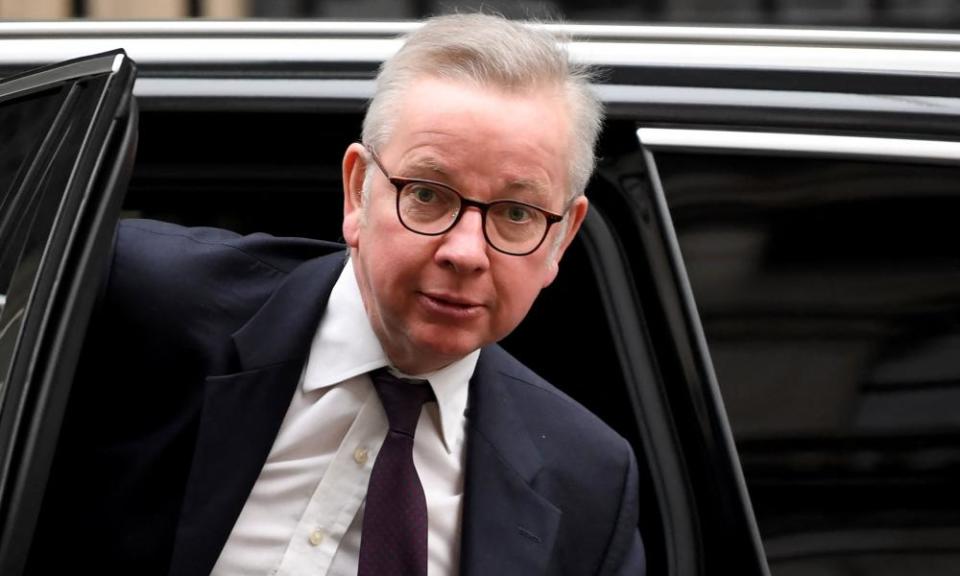At least 46 ‘VIP lane’ PPE deals awarded before formal due diligence in place

Two-thirds of contracts awarded before ‘eight-stage process’ was put in place were given out after referrals from ‘VIP lane’
At least 46 PPE deals were awarded to firms put in a special “VIP lane” by Conservative ministers, MPs and officials during the Covid pandemic before a formal due diligence process was put in place, it has emerged.
Ministers had claimed all PPE contracts were put through a rigorous “eight-stage process” for assuring quality and value for money, when criticised over the “VIP lane” via which £5bn in contracts were handed to companies with political or Whitehall connections.
However, a parliamentary answer obtained by Labour’s Angela Rayner reveals that 46 out of the 111 contracts awarded through the “high priority” lane did not go through the formal eight-stage process, which was only brought in on 4 May 2020.
Last year, the National Audit Office found that 71 PPE contracts overall were awarded before the eight-stage checking process was created.
It said: “The Department for Health and Social Care, supported by other departments, established an eight-stage process to assess and process offers of support to supply PPE. It set up processes to rapidly check suppliers’ equipment against government’s PPE specifications and to undertake due diligence on the suppliers. Contracts were awarded to 71 suppliers, worth £1.5bn in total, before this process was standardised.”
The parliamentary answer to Rayner demonstrates that almost two-thirds of these 71 contracts awarded before the formal due diligence process were given out after referrals from the “VIP lane”.
The revelation contradicts claims by Michael Gove, then a senior Cabinet Office minster, who said in the House of Commons earlier this year that “every single procurement decision went through an eight-stage process”.
Rayner said the formal process was not in place for many of the companies awarded VIP contracts and accused Gove of misleading people.
“It appears that ministers have misled parliament and the public as part of their cover-up of the VIP lane,” she said.
“It’s clear that we can’t trust a word of what ministers say about these dealings – that is why we need the publication of all meeting minutes, documents and correspondence related to every contract awarded through the VIP lane.
“The PPE fast-track VIP lane could well be just the tip of the iceberg. We need a full independent investigation to get to the bottom of the £3.5bn of contracts handed out [through the fast track].”
It emerged last month that Gove had personally referred David Meller, a Tory donor who supported his leadership bid, through the fast track. Meller’s company later won £164m in Covid PPE contracts. One of the six contracts awarded to Meller Design appears to have been concluded in late April, before the formal eight-stage process was set up.
The disclosure drew Gove into a furore over alleged cronyism that has led critics to accuse the government of running a “chumocracy” where MPs’ friends, contacts or acquaintances have won huge contracts without proper process or transparency.
Jo Maugham, the director of the Good Law Project, which mounted a legal challenge against the government over the PPE contracts, said: “Once you look at the facts for the government’s VIPs – who were more likely to get a contract – it’s pretty evident they got red carpet treatment. Indeed, you need look no further than government’s description of them as ‘VIPs’. But still, it’s good of the minister to confirm they were treated differently.”
In his answer to Rayner, Edward Argar, a health minister, said: “The ‘eight-stage process’ refers to the introduction of a central clearance board on 4 May 2020. Of the contracts for personal protective equipment, 46 were awarded before that date. However, all suppliers who were evaluated by officials prior to the introduction of the central board, were evaluated on the same criteria for financial standing, technical compliance, price and ability to perform the contract as those who were evaluated after the introduction of the central board.”
A government spokesperson said: “At the height of the pandemic there was a desperate need for PPE to protect health and social care staff and the government rightly took swift and decisive action to secure it.
“All contracts underwent rigorous financial, commercial, legal and policy assessment. Ministers were not involved in awarding contracts.”
When the list of VIP lane contracts was published, Gove denied that the referral involved any impropriety, saying he passed on offers to supply PPE. “The former minister for the Cabinet Office played no role in the decision to award any PPE contract, and all ministerial interests were properly declared to officials,” they said.
A spokesperson for David Meller pointed to a previous statement provided by Meller Designs, which said it had approached the government offering to supply equipment and was “extremely proud” of the role it played in supplying “more than 100m items of PPE”.

 Yahoo Finance
Yahoo Finance 